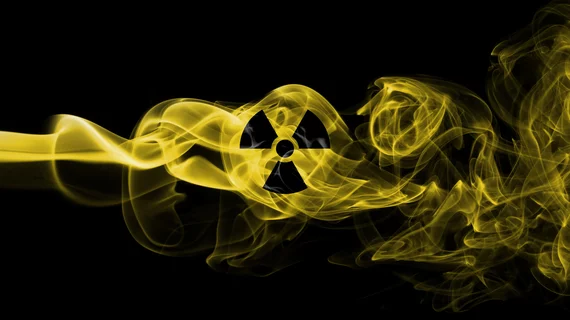Nuclear Regulatory Commission warns of medical mishaps stemming from radiopharmaceutical use
The U.S. Nuclear Commission recently issued a warning to the field about potential medical mishaps stemming from the delivery of radiopharmaceuticals.
NRC estimates that 29 of these “medical events” occurred between 2021 and 2023, with “many” involving new therapeutic radiopharma procedures. Common root causes have included failure to confirm the written directive (i.e., prescribed) before delivering the dosage, incorrect setup or administration procedures, and inadequate training of staff involved in delivering these drugs.
The federal agency issued the notice last month, with the American College of Radiology informing its members about it on Sept. 4.
“Moving forward, medical licensees and authorized personnel that offer radiopharmaceutical therapies should review the notice and apply lessons learned to inter- and intra-departmental training and protocols to avoid similar medical events in the future,” ACR urged.
NRC detailed several examples of these medical events. In one, a patient was scheduled to receive Xofigo, an injection to treat prostate cancer that no longer responds to hormonal or surgical treatment. However, the patient presented with low blood pressure on the day of treatment and the procedure was canceled. The individual returned one month later, and a provider administered the drug from the original vial, even though it had decayed, resulting in an underdosage. In another mishap, two patients were to receive two different radiopharmaceuticals—Pluvicto and Lutathera—but the provider got them mixed up and gave the wrong drugs to both patients.
“To avoid reoccurrence, this licensee implemented corrective actions by scheduling treatments with these radiopharmaceuticals on different days,” the NRC noted.
The agency is advocating for “heightened awareness” around the delivery of therapeutic radiopharmaceuticals. NRC emphasized that providers are required to develop, implement and maintain written procedures to provide “high confidence” that each administration is in accordance with the prescribing information. This is especially crucial when providers are considering adding new treatment protocols at their facility.
“These medical events illustrate the importance of training staff on new procedures and setup before treating the first patients. Licensees should consider which staff members may be involved in the procedures to ensure they have the necessary training. Mock runs before treating the first patient may minimize the risk of medical events associated with inadequate setup,” the NRC noted. “Licensees are encouraged to communicate with their peers in the industry or with manufacturers to identify additional best practices to minimize the potential for medical events, especially when they begin using a new radiopharmaceutical, equipment or protocol,” the agency added later.

